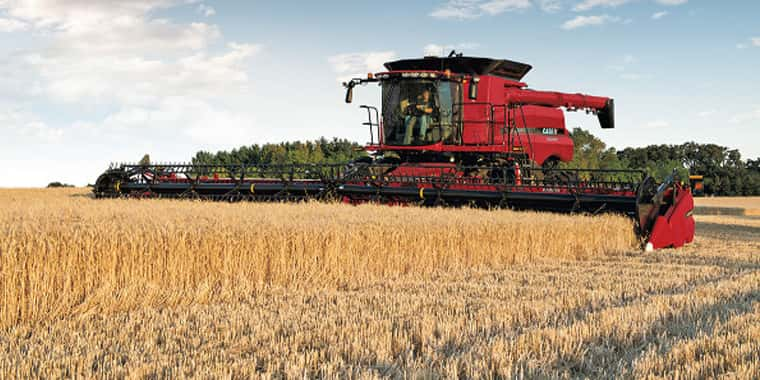CNH Industrial was among many Western companies that fled for the exits from its Russia-based business last spring after Russian military units invaded Ukraine.
A year later, one of the global leaders in ag manufacturing is following up those initial moves by doing even more to cut business ties to Russia, selling the last of its business interests there.
CNH announced in March 2022 it had suspended all shipments to Russia and Belarus after the invasion. At the same time, the company said in a statement it had donated $500,000 to organizations on the ground in Ukraine and that it was trying to help its 38 Ukraine-based employees and their families.
FINALIZING CNH’S EXIT
The company also closed its corporate office near Moscow and its manufacturing and warehouse sites for agriculture and construction equipment and parts, which employed about 200 people in total.
Now, 14 months into the conflict, CNH announced the finalization of its exit from Russia, a divestiture of its operations there, for about $60 million.
The company, which includes brands like Case IH and New Holland, reported about $380 million in business in Russia in the fiscal year 2021, the last before the invasion, about 2% of the company’s 2021 revenue.
“We wish to acknowledge our former employees for their years of dedicated service,” CNH said in a new release.
OTHER MANUFACTURERS REDUCE ACTIVITY IN RUSSIA
CNH was joined by much of the rest of the major Western ag manufacturers in its March 2022 actions. John Deere similarly suspended shipments to Russia and Belarus while working to donate money to support employees and citizens in Ukraine. AGCO made the same commitment, all those promises coming within weeks of the start of the war.
Companies have found it easier to stop shipments and to send out press releases than to withdraw entirely from Russia.
John Deere last year made headlines when it “bricked” Deere tractors stolen as Russian forces advanced into Ukraine and captured them — the company was able to control them and render the machines inoperable. Earlier this spring, Deere sold its Russian leasing arm to the Moscow-based Insight Investment Group, but that didn’t entirely sever ties with the country. Deere did not initially close its Russian factory in Orenburg, which builds seeding and tillage equipment in the country’s south, or its parts depot and combine and tractor manufacturing facility in Domodedovo, outside Moscow. Both locations are still listed as a part of the company’s worldwide network.
AGCO hasn’t singularly owned factories in Russia but announced a partnership with Russian Machines in 2013. They started work at a plant near Moscow to produce AGCO equipment from the Challenger, Massey Ferguson, Fendt and Valtra brands. AGCO also still lists administrative and distribution locations, AGCO Machinery LLC, in Moscow, and an assembly plant on the city’s outskirts.
Caterpillar also reacted early in the war, suspending construction in its Russian factory, a plant near St. Petersburg that built off-highway mining trucks as well as excavators and components for other machines and equipment. The company said it donated $1 million to support Ukraine.
“Operations in Russia have become increasingly challenging, including supply chain disruptions and sanctions,” Caterpillar said of its Russian operations at the time, which accounted for 8% of the company’s revenue according to a Yale University study.
CLAAS, based in Germany, has not curtailed its work in Russia. CLAAS noted in a recent Wall Street Journal article that its food-production equipment falls within exemptions from international sanctions against Russia.
###
DTN


